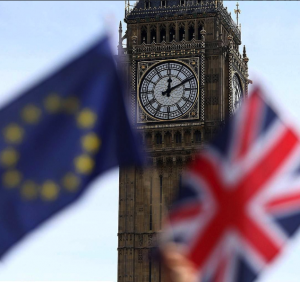

European Union (EU) member states have reached a compromise agreement on a proposed new anti-tax avoidance directive.
The European Council reached a broad agreement on the draft directive on June 17, subject to a silence procedure. Further details of the arrangements were released on June 21. The directive will be submitted to a forthcoming Council meeting for its formal adoption.
The directive sets out five key anti-avoidance measures, which all member states will be required to apply. They are:
- A controlled foreign company (CFC) rule to deter profit shifting to no- or low-tax jurisdictions. The rule will allow the member state where a parent company is located to tax certain profits that the company “parks” in a no- or low-tax country. It will be triggered if the tax paid in the third country is less than half of that which would have been paid in the member state in question. The company will be given a tax credit for any taxes it paid abroad.
- An exit tax on assets moved from an EU member state’s territory, based on the value of the assets at that point in time. Companies will be obliged to send tax authorities their balance sheets, containing information on their taxable assets, enabling authorities to determine when an asset has “disappeared.”
- A limit on the amount of net interest that a company can deduct from its taxable income, based on a fixed ratio of its earnings. There will be a grandfathering rule, so that debt in place prior to June 17, 2016, will be excluded from the scope of the rule, as will interest used to fund long-term public infrastructure projects.
- To tackle hybrid mismatches, in the event of a double tax deduction, the deduction will only be given in the source country. In situations where a deduction is given, but the corresponding income is not taxed, the deduction will be denied.
- A new General Anti-Abuse rule, to tackle abusive tax arrangements if there is no other anti-avoidance rule that specifically covers the arrangements in question.
The European Commission said that while certain of the measures it originally proposed in January have been amended, it remains convinced that a speedy agreement was imperative if quick action on tax avoidance is to be taken. The amendments focused largely on the interest deductibility rules and plans for the transposition of the new directive
Tax Commissioner Pierre Moscovici commented: “Today’s agreement strikes a serious blow against those engaged in corporate tax avoidance. For too long, some companies have been able to take advantage of the mismatches between different member states’ tax systems to avoid billions of euros in tax. I congratulate our member states who are now fighting back and working together to make the changes needed to ensure that these companies pay their fair share of tax. I also thank The Netherlands Presidency for their dedication in achieving this deal.”
Member states will have until December 31, 2018, to transpose the directive into their national laws and regulations. They will have until December 31, 2019, to transpose the new exit taxation rules. Member states that have targeted rules that are equally effective to the proposed interest limitation rules may apply them until the OECD reaches agreement on a minimum standard or until January 1, 2024, whichever is later.
Author:
Olena Kutova
senior lawyer of the Finance Business Service company

 European Union (EU) member states have reached a compromise agreement on a proposed new anti-tax avoidance directive.
The European Council reached a broad agreement on the draft directive on June 17, subject to a silence procedure. Further details of the arrangements were released on June 21. The directive will be submitted to a forthcoming Council meeting for its formal adoption.
The directive sets out five key anti-avoidance measures, which all member states will be required to apply. They are:
European Union (EU) member states have reached a compromise agreement on a proposed new anti-tax avoidance directive.
The European Council reached a broad agreement on the draft directive on June 17, subject to a silence procedure. Further details of the arrangements were released on June 21. The directive will be submitted to a forthcoming Council meeting for its formal adoption.
The directive sets out five key anti-avoidance measures, which all member states will be required to apply. They are: